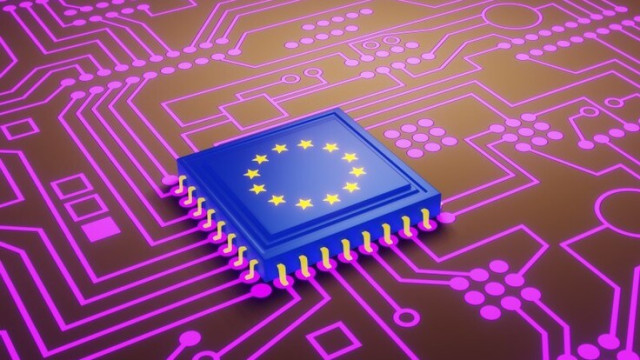Leading European research labs have been granted €2.5 billion ($2.72 billion) in funding under the European Chips Act to establish a pilot line for developing and testing next-generation computer chips.
Belgium's Interuniversity Microelectronics Centre, IMEC made this known on Tuesday.
Imec CEO Luc Van den Hove speaking on the project's potential, said, "The investment will allow us to double volumes and learning speed, accelerating our innovation pace, strengthening the European chip ecosystem, and driving economic growth in Europe. The NanoIC pilot line will support a diversity of industries in Europe, including automotive, telecommunications, health, and others."
This initiative aligns with the broader €43 billion European Chips Act, introduced in 2023 to bolster domestic chipmaking capabilities and counterbalance similar efforts by China, the U.S., and other nations in response to pandemic-induced chip shortages.
The pilot line, hosted by IMEC in Leuven, Belgium, will focus on sub-2 nanometer chips, providing European industry, academia, and startups with access to expensive chip manufacturing technology for testing and development purposes.
Major chipmakers like TSMC, Intel, and Samsung are already launching 2-nanometer chips in their commercial plants, but the European R&D line aims to advance even further.
Funding for the project comes from various sources, including EU programs, Belgium's Flanders government, and industry players like ASML, a leading equipment maker.
Other participating research laboratories include CEA-Leti of France, Fraunhofer of Germany, VTT of Finland, CSSNT of Romania, and the Tyndall Institute of Ireland.
While the EU's financial support primarily originates from member states, it has lagged behind funding in other regions. So far, only STMicroelectronics has received approval for €2.9 billion in aid from France for a plant in Crolles.
Intel and TSMC are still awaiting EU approval for billions of euros in German state funding to initiate the construction of plants in Magdeburg and Dresden this year.
This substantial investment in European chip research and development demonstrates the EU's commitment to strengthening its position in the global semiconductor industry and fostering innovation within the region.




















